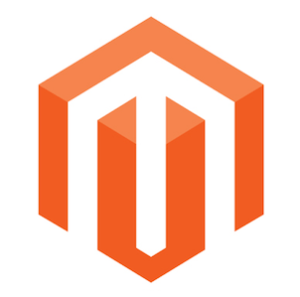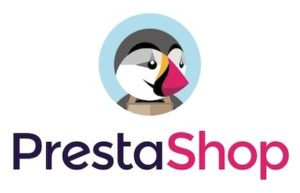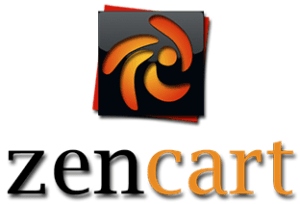TOP 6 open source e-commerce platforms
Written by
Editorial TeamPublished on

Choosing the best e-commerce platform is as subjective and tricky as trying to find the most beautiful woman in the world. E-commerce solutions comparison shows that each of existing platforms has its own advantages and strong points suitable for some clients but totally improper for others.
All e-commerce platforms may be divided into 2 big categories according to code and data access:
- Open source solutions
- Hosted solutions
‘To host or not to host?’ – this is an eternal question, since it’s a choice between complicated freedom and limited simplicity.
If you prefer an open source platform – which means it is freely available for anyone to use, modify, and customize – you are not obliged to host it, and you can delegate hosting responsibilities to the company that has developed the platform.
On the other hand, hosted solutions like Shopify (check Shopify Headless Storefront) or Bigcommerce offer a narrower range of customization opportunities, but since most of the hosted out-of-the-box solutions have pretty standard functions to offer, a hosted e-commerce platform can also become the best choice for you.
For those of you who are not looking for open source help, we have described the TOP 6 Open Source E-commerce Platforms:
- Magento
- OpenCart
- WooCommerce
- PrestaShop
- Square online
- Zen Cart
Let’s start with the first one.
Magento (now Adobe Commerce, part of Adobe Experience Cloud)

Magento is a well-known enterprise-level player and it is a great fit for large-scale retailers with high sales load. This platform has already gained recognition from the world’s leading brands, and it is capable of handling massive amounts of data and traffic, which is considered to be one of the most important requirements for big enterprises. Since 2018, it’s been a part of Adobe ecosystem – Magento was acquired by Adobe Inc in May 2018 for $1.68 billion.
20% of the leading online retailers in the United States use this platform. It has an average of more than 5,000 downloads each day. Furthermore, it has a very high-security level, and in case any detection or vulnerability issues occur, the security team immediately reacts to them and launches security patches. Due to these regular updates, Magento stores can be protected from malware attacks.
Adobe Commerce is fully customizable and scalable, which might seem to be a strange advantage over other open source platforms, which claim to be flexible as well. But, keep in mind that all of them have some restrictions, while Magento is absolutely tailor-makeable. This customization freedom is another side of the medal, though, since the cost of adjustments may be quite high.
However, the investment in a Magento store will pay off with an increased sales rate, saved time and money due to the lack of unnecessary operations and automated processes. This platform processes more than $155 billion in transactions annually, and some of that may be yours.
Magento comes in two editions Open Source and Adobe Commerce. To know more about the differences, here is a very comprehensive Magento Commerce review. Alternatively, you may take a look at Magento alternatives.
OpenCart

OpenCart is also an open source e-commerce platform that enables individuals and businesses to create online stores and sell products or services over the Internet. It is a popular choice for building and managing e-commerce websites due to its simple interface. It’s a lightweight system that requires fewer resources than Magento.
In general, OpenCart looks like a great solution for startups and small companies that are going for independent web store development. The tremendous advantage of this platform is its clarity and user-friendliness and the fact that it’s suitable for less experienced users. It allows users to create and manage multiple online stores from a single admin panel. This is useful for businesses that operate multiple e-commerce websites.
Also, OpenCart themes are designed to be responsive and ensure that the online store adapts to different screen sizes and devices, including mobile phones and tablets.
WooCommerce

WooCommerce is a widely used e-commerce open source plugin for WordPress. It allows users to add e-commerce functionality to their websites and effectively turn them into online stores. It’s highly popular among small to medium-sized businesses, bloggers, and individuals who use WordPress.
WooCommerce is used by 3.5% of all websites. It is famous for its user-friendly interface, extensive customization options, and a large library of extensions and themes. It allows you to upload and manage an infinite number of products, run a blog, and perform SEO and marketing activities. Its community includes a lot of professional developers who can release a vast array of options and customizations for your web store.
WooCommerce is a leading e-commerce platform on the entire web due to its big target audience of WordPress users and small companies that are familiar with this CMS. Thus, it isn’t surprising that it has a market share of 23.43%.
All you need to do is install a shopping cart plugin, run and customize it to your requirements and you are ready to create products. Manage orders, coupons, reports, inventory, linked products, shipping, settings, add-ons, add tags, and categories to all of your products effortlessly.
If you’re new to the e-commerce environment, you are targeting a marketing niche in general, or have a slim range of products, it may be a good idea to try out this platform.
PrestaShop

PrestaShop is an e-commerce platform that provides a comprehensive solution for individuals, medium-sized businesses, and e-commerce entrepreneurs looking to create and manage online stores. It is praised for its customization and scalability as well. At the end of January 2024, there were about 214,507 stores running on the PrestaShop platform.
PrestaShop offers a range of features and tools to facilitate the setup and management of online stores. Users can customize the appearance and functionality of their stores by choosing from a variety of themes and modules available in the PrestaShop marketplace. This extensibility allows businesses to tailor their e-commerce websites to their specific needs and branding.
PrestaShop is pretty easy to set up if the hosting company supports one-click installation. If you want to install it manually, you must have technical knowledge. This platform is pretty popular in Europe – especially in France, Spain, Poland, and Italy. That’s actually nothing surprising, as the company is located in France.
Hiring a PrestaShop developer will cost you less than hiring the one for Magento, but you’ll have to pay that extra money for quite expensive modules for this platform.
Square Online

Square Online is an e-commerce platform offered by Square, a technology platform serving all kinds of businesses. Square Online is designed to help companies of all sizes create and manage online stores quickly and easily. It provides a range of tools and features to enable merchants to establish an online presence, manage their products, and accept online payments. As of the end of January 2024, there were 252,378 stores operating on the Square Online platform.
With Square Online, firms can set up an online store without the need for extensive technical expertise. The platform offers a user-friendly website builder that allows merchants to create customized online stores by selecting from a variety of templates and design options. This makes it accessible to small businesses, restaurants, retailers, and service providers looking to expand their online reach.
One of the notable features of Square Online is its integration with Square’s payment processing system. Merchants can seamlessly accept payments online using Square’s payment gateway, which supports credit card payments, digital wallets, and other payment methods. This integration simplifies the payment process for businesses and ensures secure and efficient transactions.
This platform is designed to be mobile-responsive, so it can ensure that online stores function well on smartphones and tablets.
Zen Cart

Last but not least, is ZenCart. It’s also an open source e-commerce software solution that provides a flexible and customizable platform for individuals, small businesses, and enterprises.
Zen Cart offers a range of features and functionalities to support the setup and operation of online stores. Users can create product catalogs, manage inventory, process orders, and handle customer information efficiently. The platform also provides support for various payment gateways and shipping options and gives businesses the possibility to offer diverse payment methods and delivery choices to their customers.
One of Zen Cart’s strengths is its extensibility. Users can enhance their online stores by integrating additional modules and plugins available in the Zen Cart community. These extensions cover a wide range of functionalities, including SEO optimization, marketing, analytics, and more.
This platform places a strong emphasis on security, so it provides tools and best practices to protect online stores from potential threats. This ensures a safe shopping experience for both businesses and customers. Additionally, it offers support for multiple languages and currencies.
Last words
Choosing the right open source e-commerce platform is no piece of cake. There are many options available on the market, so do some good research before you make your final choice. Also, think about what your needs are, identify the features you need, determine your budget, ect. Then you will be well equipped with information and choose wisely. Good luck!
FAQ: Open Source E-commerce Platforms
1. What is an open source e-commerce platform?
An open source e-commerce platform is a free platform that provides the foundational framework for building an online store. Unlike proprietary software, its source code is freely available for customization and improvement by anyone, making it a flexible choice for e-commerce store owners who want to tailor their online business to specific needs.
2. How does Drupal Commerce serve as an e-commerce solution?
Drupal Commerce is an example of an open source e-commerce solution integrated with the Drupal content management system. It offers a versatile structure for e-commerce websites, allowing for extensive customization and scalability, catering to market and enterprise brands with specific business needs.
3. Can open source e-commerce platforms support multi vendor marketplaces?
Yes, many open source e-commerce platforms can be extended to support multi vendor marketplaces through plugins or modules. This functionality allows multiple sellers to list and sell their products on a single e-commerce website, providing a comprehensive inventory management system and various third-party integrations for a seamless operation.
4. Do I need technical knowledge to manage an open source e-commerce software?
While basic operations can be managed with minimal technical knowledge, leveraging the full potential of open source e-commerce software often requires some web development expertise. However, many platforms come with extensive documentation and community support to help non-technical users.
5. What are the benefits of using Adobe Commerce for my e-commerce store?
Adobe Commerce (formerly Magento Community Edition) offers a robust open source e-commerce framework with a wide range of features, including inventory management, SEO tools, and marketing tools. It’s designed to be scalable, making it suitable for online business owners looking to grow their business. The platform also supports multiple stores and third-party integrations, providing a comprehensive e-commerce solution.
6. Is there a free version of open source e-commerce platforms?
Yes, many open source e-commerce platforms offer a free version that includes basic e-commerce functionality. These free e-commerce platforms are ideal for small businesses and startups looking to establish an online presence without a significant initial investment.
7. What makes Spree Commerce unique among open source e-commerce platforms?
Spree Commerce is known for its lightweight, modular architecture based on the Ruby on Rails framework. It’s designed for developers looking for a quick and easy way to build a scalable online store with minimal overhead, offering a modern, API-first approach to e-commerce.
8. How do inventory control systems integrate with open source e-commerce platforms?
Open source e-commerce platforms often support integration with various inventory control systems through APIs or plugins. This integration allows for real-time inventory tracking, automated restocking alerts, and streamlined order processing, enhancing the efficiency of online stores.
9. What is a headless e-commerce platform, and how does it benefit e-commerce store owners?
A headless e-commerce platform separates the frontend presentation layer from the backend e-commerce functionality, allowing for greater flexibility in designing the user experience. This approach benefits e-commerce store owners by enabling them to use any frontend technology to create a unique customer experience while maintaining a robust e-commerce backend.
10. Can open source e-commerce solutions accommodate the needs of SaaS e-commerce platforms?
While open source e-commerce solutions are primarily designed for businesses managing their hosting and infrastructure, they can be adapted to serve as the foundation for SaaS e-commerce platforms. This adaptation may require significant customization and a scalable infrastructure to support the SaaS model’s demands.
11. Why are SEO tools important for an e-commerce website, and are they available in open source e-commerce platforms?
SEO tools are crucial for an e-commerce website to enhance its visibility in search engine results, driving organic traffic and increasing sales. Most open source e-commerce platforms come with built-in SEO tools or allow for the integration of third-party SEO plugins, helping online business owners optimize their sites for better search engine ranking.


